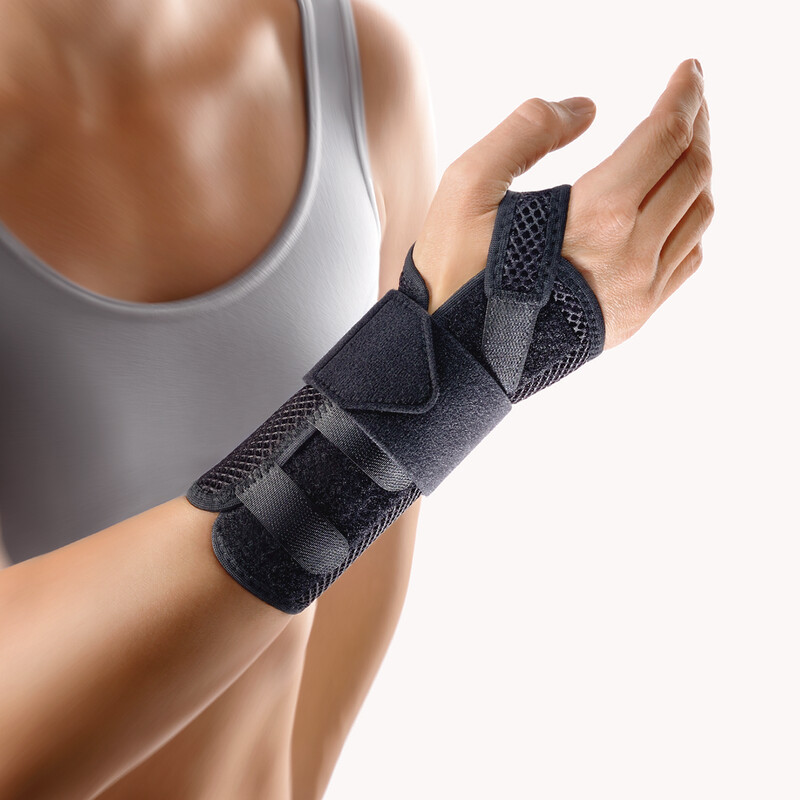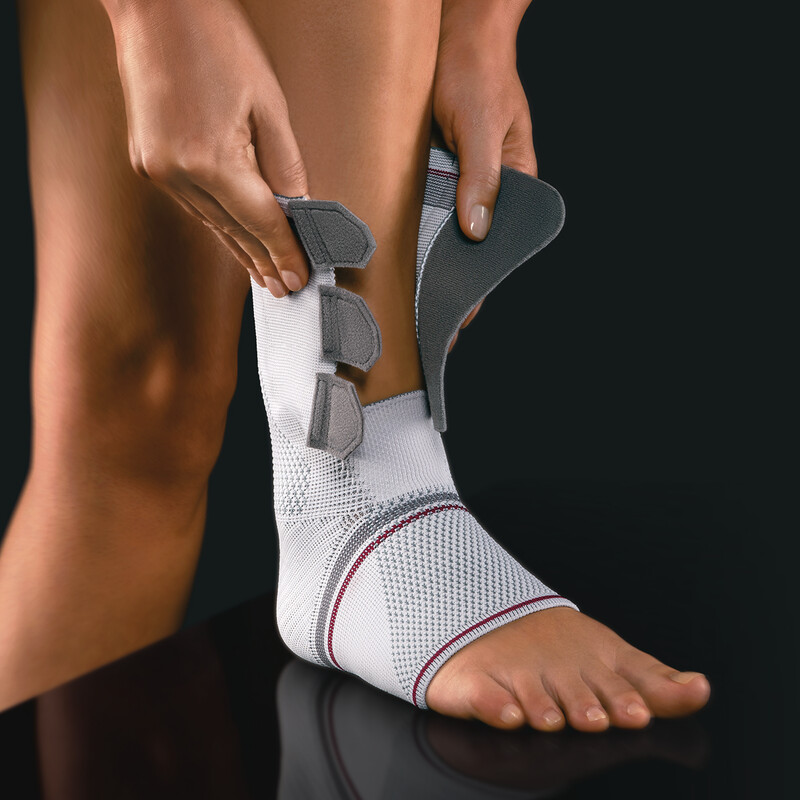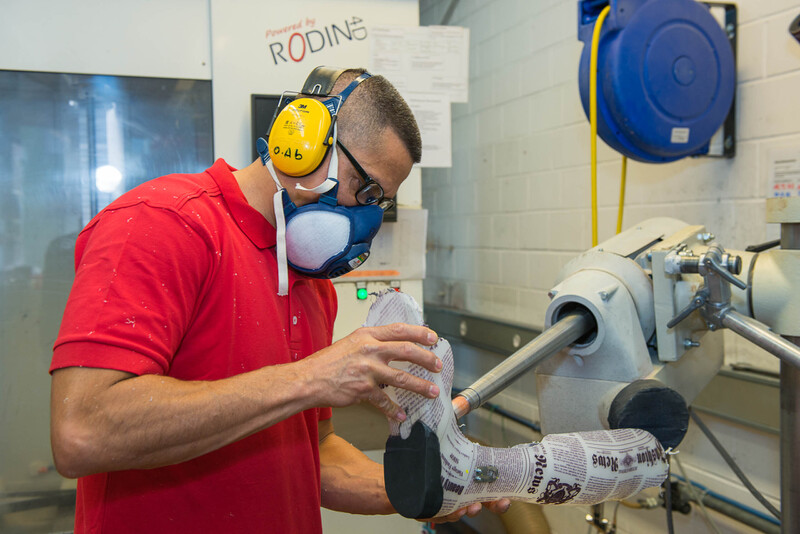Orthoses & bandages as support
Orthoses and bandages help to restore or support mobility in different parts of the body. These body parts can be arms, legs, feet, hands or the torso. Joints can also be surrounded by orthoses or bandages and thereby stabilize them. They relieve pain that occurs after operations, as a result of accidents or from signs of aging by specifically relieving certain regions. They also ensure a healthy movement and avoid protective postures that could lead to subsequent injuries.


Orthoses & bandages in Basel
Die Unterschiede
The difference between bandages and orthoses is usually the material that is used. Bandages are made of lighter material such as compression knit and offer more flexibility than orthotics. Orthoses, on the other hand, are more complex and made of solid material. They ensure a high level of stability with partially restricted freedom of movement.
Orthoses are needed to stabilize, relieve or fix certain parts of the body. They usually have a complex design and are often used after operations or accidents. Here they support the healing process and ensure better stabilization. The material is stable and suitable for immobilizing and fixing whole areas of the body. Orthoses can also be worn in the form of a bodice or corset. There are also orthoses that are used permanently for chronic and long-term limitations.

Bandages for more freedom of movement
To support the healing process
Bandages help to relieve joints and support movement processes. They also play an important role in prevention. They protect against injuries or further wear and tear and stabilize certain body parts in a targeted manner for individual bodily functions. Bandages are made of a breathable and flexible material and, due to their special construction, ensure a slight compression of the parts of the body they cover. This stimulates blood circulation and promotes a healing process.

Made-to-measure orthoses
From our specialist workshop in Basel
In certain cases, it may be necessary to make custom-made orthoses. In our workshop, our trained employees make custom orthoses that are precisely tailored to the needs of individual customers. The production takes place in a conventional way or in the additive printing process. Our made-to-measure orthoses guarantee an optimal fit and effective support for the affected body parts. Feel free to come to our business premises and have an individual orthosis made to measure for you.

Questions & Answers about orthoses and bandages
The biggest difference between an orthosis and a bandage lies in the material and the complexity of both aids. An orthosis has more stability and is often made of solid materials such as plastic. Bandages, on the other hand, consist of a solid knitted fabric that encloses the knee, for example, to give it better support. Bandages ensure greater flexibility than orthoses and have a more supportive and preventive effect.
There are orthoses for almost all areas and parts of the body. Starting with the neck orthosis, through the shoulder orthosis, elbow orthosis, armourthesis, hand orthosis, torso orthosis, hip orthosis, leg orthosis, to the foot orthosis.
Orthoses or bandages are often used postoperatively to support a healing process. It can also be used to stabilize joints or promote blood circulation through the compression effect. Orthoses or bandages are also used for temporary or chronic movement restrictions.
Orthoses are often used after accidents or operations. They support the healing process by immobilizing, relieving or stabilizing a certain part of the body.
Bandages often consist of a breathable and flexible knitted fabric that is kind to the skin. This exerts additional pressure on the enclosed body parts and thus promotes blood circulation. Orthoses, on the other hand, are made of firmer materials and can fix certain parts of the body if necessary.

Notfallservice:
061 205 77 77
Mo - Fr 17:30 bis 21:00
Sa - So 10:00 bis 16:00
*Die Pikett – Servicepauschale beträgt Fr. 150.-
und ist sofort vor Ort zu begleichen.
Öffnungszeiten:
Montag bis Freitag:
08:00 - 12:00
13:30 - 17:30
Samstag geschlossen
Unseren gesonderten Öffnungszeiten:
- Mittwoch, 8. Mai ab 16 Uhr geschlossen
- Donnerstag, 9. Mai geschlossen
- Montag, 20. Mai geschlossen
- Mittwoch, 31. Juli ab 16 Uhr geschlossen
- Donnerstag, 1. August geschlossen
- Montag, 23. Dezember ab 16 Uhr geschlossen
Geschäft bleibt zwischen Weihnachten und Neujahr geschlossen und ist am 2.01.2025 wieder geöffnet.